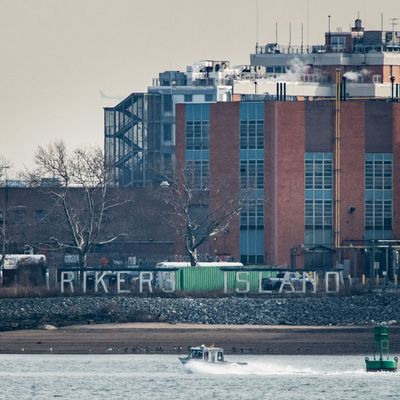
When he was appointed by Mayor Eric Adams earlier this year, Department of Correction commissioner Louis Molina said he was “unequivocally committed to transparency and restoring public trust” in the agency, which was plagued by corruption and 16 deaths in its custody in 2021. But last week, as the number of deaths at Rikers Island and other jails threatened to tie last year’s total, he tried to skew the tally.
Elmore Robert Pondexter, 59, had been held at Rikers since April 2020 and was complaining to his family of chest pains and difficulty breathing before collapsing on September 18. He was then taken by authorities to Bellevue Hospital, where his heart stopped; though his pulse returned, doctors determined he was brain-dead, and he was taken off life support and died four days later.
Hours before Pondexter’s death, Molina said to “make sure we do what we can” in order to keep his death “off the Department’s count,” according to an email obtained by the New York Times. And that’s just what happened: Pondexter was granted compassionate release while he was in the hospital, and his death was kept off the department’s count.
“At first we were happy he died with dignity, and we knew he wouldn’t die a prisoner,” Aquandra Morris, one of Pondexter’s adult children, told the Times. “But, then I thought about it — something is not right. They are trying to relinquish their responsibility.”
A DOC spokeswoman said the compassionate release was “technical in nature” and designed to ensure that final hours are spent in privacy with family, but Molina’s email shows the extent to which the department is trying to avoid scrutiny for the growing number of deaths in its custody. If Pondexter’s life had ended while he was still held by Rikers Island, he would have been the 15th death in custody this year.
Had the DOC not pulled a similar move in June, granting a deathbed compassionate release to 28-year-old Antonio Bradley after he attempted to kill himself in a Bronx court holding cell, the tally would be 16, matching last year’s total. And according to records obtained by the Times, this is not the first time Molina has personally tried to adjust the death count: In April, 42-year-old Walter Turner was given Tylenol at Rikers when he complained of severe stomach pain. Less than a week later, he went septic and suffered cardiac arrest during a surgery. At the hospital, Molina told Turner’s mother, Roslyn Greene-Turner, that he would get the charges dropped to “get him out of custody.” Although she initially refused so that the jail system would not avoid the scrutiny of his death while in custody, she worried that she would be hit with the medical bills. She says she ultimately gave in when she found out family visits would be limited, their pastor could not visit, and Turner could not be transferred to a long-term-care facility while he was incarcerated. She believes those restrictions were designed to pressure her to consent to the plan to release her son — who ultimately lived but lost significant brain function.
In recent years, the city’s jail system has been in a state of constant crisis due to overcrowding, violence, and consistent sick-outs from correction officers. Oversight measures designed to curb the horrific conditions have not always yielded results. In June, a federal option to take over Rikers was suspended when a judge approved a reform plan promising long-awaited results. Days after Molina was appointed, in January, he fired the department’s top investigator after she claims she defied his order to “get rid” of thousands of disciplinary cases against guards.






























